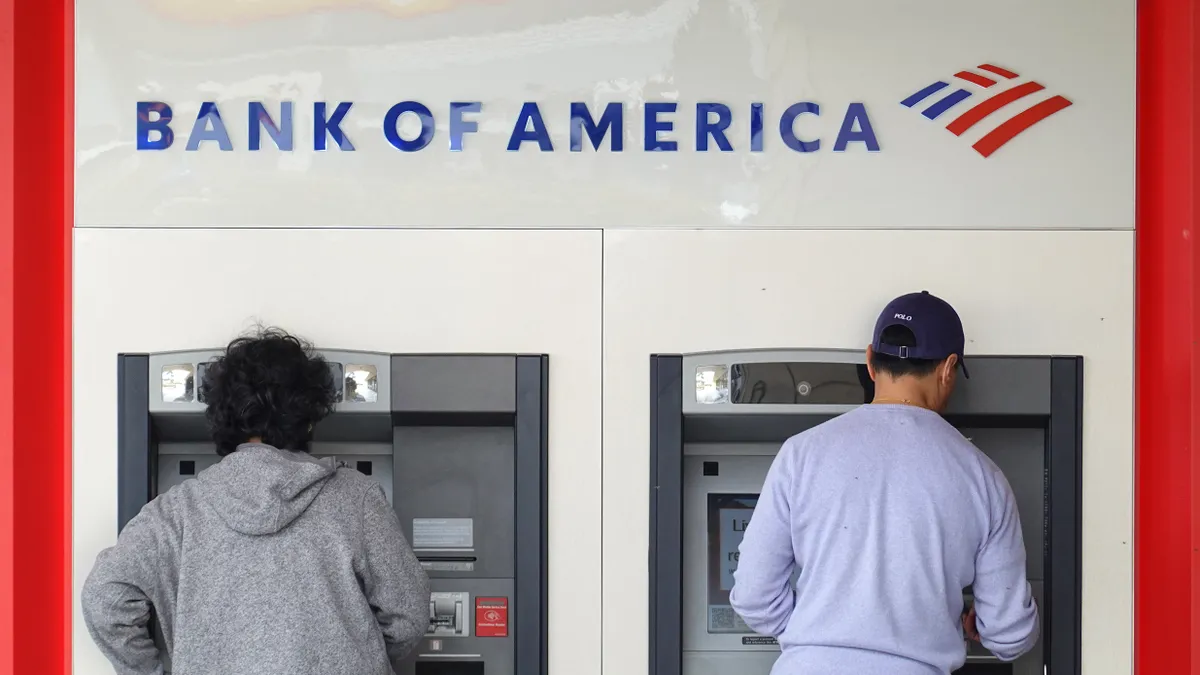Bank of America must shore up its Bank Secrecy Act and sanctions compliance programs, according to a cease-and-desist order issued last week by the Office of the Comptroller of the Currency.
The Dec. 23 order is based on unsafe and unsound anti-money laundering practices, including a lag in suspicious activity reporting and a failure to fix issues it knew about within its due diligence processes.
Bank of America must take corrective action on the internal controls, governance, independent testing and training components of its BSA compliance programs to satisfy the regulator. The bank must hire an independent consultant to do a deep dive of such programs, and to also do a lookback on its suspicious activity report history.
“We have been working closely with the Office of the Comptroller of the Currency over the past year to make improvements to our anti-money laundering and sanctions programs,” a bank spokesperson told Banking Dive via email. “The work we’ve done so far positions us well to implement the requirements of the consent order.”
Bank of America disclosed in its October quarterly filing that it was in contact with regulators about its BSA compliance programs, and that its discussions could lead to an enforcement action.
“Based on these discussions, the Corporation does not expect these issues relating to the Programs will have a material adverse financial impact on the Corporation,” the filing said.
The Dec. 23 order did not come with any monetary penalty. The OCC declined to comment beyond its press release.
Regulators have been on high alert for BSA/AML compliance issues, following issues at TD Bank, which found itself embroiled in scandal after a Justice Department investigation found that millions of dollars from an illicit fentanyl operation were funneled through TD accounts.
Criminals in New Jersey laundered $653 million in proceeds from the drug, including through several TD branches where they allegedly bribed bank employees with tens of thousands of dollars in gift cards.
TD has since agreed to more than $3 billion in penalties and an asset cap on its U.S. retail business.
Regulators have issued AML-related enforcement actions to both small and large banks, including Wells Fargo in September; Maitland, Florida-based Axiom Bank in October; and Lenexa, Kansas-based Small Business Bank in November.








